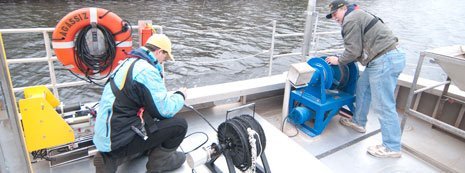Comparative study of ethanol foamed asphalt binders and mixtures prepared via manual injection and laboratory foaming device
© 2019 Periodical Offices of Chang'an University.
Abstract
The consistency of the ethanol foamed binders and mixtures prepared using asphalt binders foamed by the manual injection technique and laboratory foaming device were evaluated and compared in this study. The asphalt binders foamed using both methods was prepared at 120 °C, 130 °C and 140 °C. The performance of ethanol-foamed binders was evaluated in terms of rotational viscosity, expansion ratio, and low temperature cracking. Meanwhile, the performance of foamed WMA mixtures was tested using semi-circular bending (SCB), disk-shaped compact tension (DCT), and tensile strength ratio (TSR) tests. In order to conduct the TSR test, the samples were conditioned using the Moisture Induced Stress Tester (MIST) to simulate the pore pressure and scouring effects due to a tire passing over wet pavement. The foamed WMA mixtures were produced using pre-heated aggregates at 80 °C and 100 °C and foamed asphalt binders produced at 130 °C. The nano-hydrated lime was used as the filler and anti-stripping agent. Overall, the properties of ethanol-foamed binders and WMA mixtures produced via both methods are significantly comparable, except the resistance to moisture damage test result. However, the findings indicate that the ethanol-foamed WMA mixtures prepared using both techniques are having good resistance to moisture damage, based on the TSR values more than 0.8. The foamed WMA mixtures also exhibited a better resistance to cracking, as indicated by a higher tensile strength compared to the control HMA. Additionally, the WMA specimen prepared at 100 °C was less susceptible to rutting than the samples produced at 80 °C.

